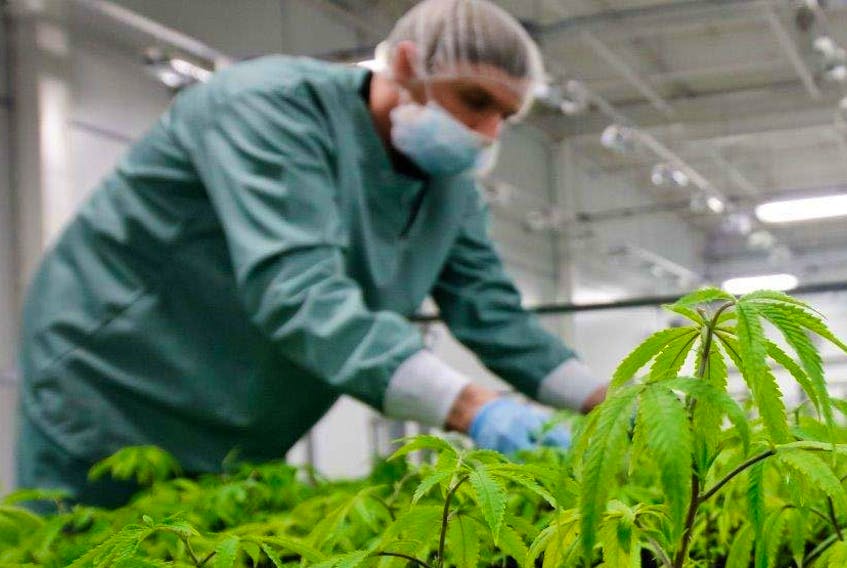A new cultivation facility in Stellarton has received the green light to begin producing up to 18,500 kilograms of dried cannabis per year.
Vancouver-based company Zenabis Global Inc. received its cultivation licence from the federal government on Friday, and CEO Andrew Grieve said the work had already started on production of the first crop, which will be ready in a few months. Zenabis is the sixth company to be licensed to produce recreational cannabis in Nova Scotia.
Grieve said that the indoor, 255,000-square-foot Stellarton facility is expected to support 200 full-time jobs at full capacity.
“Our Stellarton facility, just like our Atholville, N.B., facility, will be one of the largest indoor facilities for cannabis cultivation in the country,” Grieve said. “We are very excited to increase our growing capacity in Eastern Canada. We are also incredibly grateful to the community for their support, and we look forward to significantly increasing local employment.”
Zenabis also has facilities in Delta and Langley, B.C.
According to a news release, Zenabis’ Stellarton facility features a production environment that supports both cultivation and finished product operations, as well as new product development. The facility also includes areas for commercial-scale oil extractions, pharmaceutical grade manufacturing, and both plant-based and analytical research and development.
Grieve said Stellarton was chosen as the location for its new facility because of an available factory in the community that was once used to manufacture Clairtone speakers. Zenabis was able to purchase the facility and get it retrofitted for cannabis cultivation and production.
He said Zenabis has received much support from the community.
“Millbrook First Nation actually invested $5 million in Zenabis, so they have been a fantastic partner for us,” he said.
“We are incredibly grateful to all the community and government members who come together in order to make this happen.
Zenabis started as a manufacturer of medicinal marijuana products. Consumers living in many parts of Canada, including Nova Scotia, New Brunswick and P.E.I. can purchase the company’s Namaste-brand products from licensed producers.
While the Stellarton facility only currently has a cultivation licence, meaning the cannabis will be shipped to other facilities to be processed and packaged, Grieve said the company is still determining the exact mix of cultivation and processing it will aim for in Stellarton. He said the company is also looking at future opportunities in drinkable and edible cannabis products, which become legal in October, and will eventually be processed in Stellarton once the facility gets the proper licence.
“We need licensed facilities that can actually take cannabis inputs and then use that combined with non-cannabis inputs in order to create, for example, a beverage or an edible product,” Grieve said.
Zenabis has already acquired a majority stake in a Calgary-based kombucha called True Buch and plans to produce and sell cannabis-infused kombucha for the recreational market.
Grieve said he’s pleased Canada has approached the legalization of cannabis in a way that supports economic development in communities across the country.
“(Legalization) takes something where the benefits from an economic standpoint, we’re flowing to elicit producers and instead provides for a situation where the benefits flow to communities that support this new industry,” he said.









